
SCARS Institute’s Encyclopedia of Scams™ Published Continuously for 25 Years

Authors:
• Vianey Gonzalez B.Sc(Psych) – Psychologist, Certified Deception Professional, Psychology Advisory Panel & Director of the Society of Citizens Against Relationship Scams Inc.
• Tim McGuinness, Ph.D., DFin, MCPO, MAnth – Anthropologist, Scientist, Director of the Society of Citizens Against Relationship Scams Inc.
Article Abstract
This Cognitive Biases article delves into the Authority Bias, shedding light on its mechanisms and profound influence on scam victims.
Rooted in societal norms and evolutionary instincts, authority bias predisposes individuals to trust and comply with perceived authority figures, making them vulnerable to manipulation by scammers. Scammers adeptly exploit this bias, assuming personas of authority figures to engender compliance and facilitate deception.
As a result, victims may instinctively comply with requests without critical evaluation, overlooking warning signs and compromising their security. Understanding the neurological underpinnings of authority bias, such as its activation of the amygdala and inhibition of the prefrontal cortex, provides insights into its influence on decision-making processes.
By creating awareness of authority bias and its implications, we can empower individuals to recognize and resist manipulation, thus mitigating susceptibility to scams and fraud.
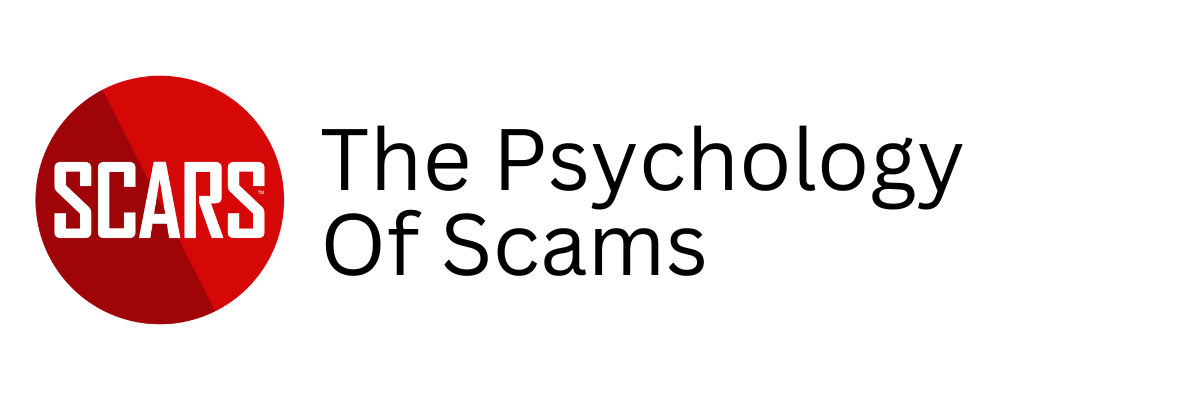
Authority Bias: Its Mechanisms and Influence on Scam Victims
This Cognitive Biases article about the Authority Bias is part of SCARS continuing commitment to helping the victims of scams (financial fraud) to better understand the psychology of scams. In other words, why are scam victims vulnerable?
Authority Bias
Authority bias is a cognitive bias deeply ingrained in human psychology, influencing how individuals perceive and respond to authority figures in various contexts. Stemming from societal norms, cultural conditioning, and evolutionary instincts, authority bias serves as a mechanism for social order and cohesion, allowing individuals to navigate complex social hierarchies and defer to those perceived as having expertise or power.
It is rooted in societal norms and conditioning, this cognitive bias predisposes individuals to attribute greater credibility and trustworthiness to those in positions of authority. When encountering individuals who exude authority, such as law enforcement officials, medical professionals, or financial experts, individuals are more inclined to comply with their directives without critical evaluation.
Authority Bias and Scams
In the case of scams and fraud, authority bias becomes a potent tool for exploitation. Scammers, recognizing the inherent trust and deference accorded to authority figures, strategically assume personas that evoke authority and credibility. Whether posing as bank representatives, government officials, or tech support agents, scammers employ sophisticated tactics to mimic the language, demeanor, and symbols associated with authority. By doing so, they effectively disarm victims’ skepticism and engender compliance, paving the way for deception and manipulation.
The influence of authority bias on scam victims is multifaceted and insidious. Victims, conditioned to respect and obey authority figures, may instinctively comply with requests or directives from perceived authorities without engaging in critical analysis or scrutiny. This blind trust can lead victims to overlook warning signs, such as inconsistencies in communication, unusual requests for personal information, or pressure tactics designed to elicit swift compliance.
Scammers adeptly exploit the authority bias to manipulate their victims. By assuming personas of authority figures—such as bank officials, government representatives, or tech support agents—scammers capitalize on scam victims’ predisposition to trust and obey authority. Through persuasive tactics and the strategic deployment of authority cues, such as official-sounding language or the use of symbols, scammers create a facade of legitimacy, inducing compliance and facilitating deception.
Influence and Authority Bias
The influence of authority bias on scam victims is profound. Scam Victims, under the sway of authority bias, are less likely to question the legitimacy of requests or directives from perceived authority figures. This blind trust often leads victims to divulge sensitive information, engage in financial transactions, or undertake actions that compromise their security and well-being.
Authority bias induces a psychological conflict in victims when faced with potential scams.
On one hand, scam victims feel compelled to trust and defer to the perceived authority figure, while on the other hand, they may experience a nagging sense of doubt or suspicion. This internal struggle, known as cognitive dissonance, can paralyze victims, impairing their ability to discern truth from deception and leaving them vulnerable to exploitation.
To mitigate the impact of authority bias on scam victims, businesses and organizations must prioritize appropriate interventions, awareness, education, and empowerment. By educating consumers about the psychology of scams and the tactics used by fraudsters to exploit authority bias, businesses can empower individuals to recognize and resist manipulation.
Additionally, by helping to create a culture of skepticism and critical thinking can help inoculate individuals against the influence of authority bias, enabling them to make more informed decisions and protect themselves from fraudulent schemes.
How does the Authority Bias Work in the Brain?
Authority bias operates within the intricate workings of the human brain, exerting its influence through a combination of psychological mechanisms and cognitive processes. When individuals encounter someone they perceive as an authority figure, several regions of the brain become activated, contributing to the manifestation of this bias and increasing cognitive dissonance.
- Amygdala and Emotional Response: The amygdala, a key brain structure involved in processing emotions, plays a significant role in the authority bias. When individuals encounter perceived authority figures, the amygdala may respond by triggering feelings of respect, trust, or deference. This emotional response can override rational judgment and contribute to the automatic acceptance of information or directives provided by the authority figure.
- Prefrontal Cortex and Decision-Making: The prefrontal cortex, particularly the dorsolateral prefrontal cortex (DLPFC), is responsible for higher-order cognitive functions, including decision-making and reasoning. In the presence of authority figures, the DLPFC may become less active, leading to decreased critical evaluation and analysis of information. This inhibition of the DLPFC can result in a propensity to defer to the perceived authority without engaging in thorough scrutiny or skepticism.
- Oxytocin and Social Bonding: Oxytocin, often referred to as the “love hormone” or “trust hormone,” is implicated in social bonding and affiliation. When individuals interact with perceived authority figures, oxytocin levels may increase, fostering feelings of connection and trust. This heightened sense of trust can enhance the influence of the authority figure and make individuals more susceptible to persuasion and compliance.
- Social Conditioning and Cultural Norms: Authority bias is also shaped by social conditioning and cultural norms ingrained in individuals from a young age. From childhood, individuals are taught to respect and obey authority figures, such as parents, teachers, and law enforcement officers. These learned behaviors become deeply ingrained in the psyche and influence how individuals perceive and respond to authority throughout their lives.
- Heuristics and Mental Shortcuts: Additionally, authority bias may be exacerbated by cognitive heuristics or mental shortcuts, that individuals use to simplify decision-making processes. When faced with complex or uncertain situations, individuals may rely on heuristics, such as the “expertise heuristic,” which involves trusting information provided by perceived experts or authority figures without further scrutiny.Cognitive heuristics are mental shortcuts or rules of thumb that individuals use to simplify decision-making and problem-solving processes. These heuristics are often employed when faced with complex or uncertain situations, allowing individuals to make judgments quickly and efficiently. While cognitive heuristics can be useful in conserving cognitive resources and facilitating rapid decision-making, they may also lead to biases and errors in judgment. Common cognitive heuristics include the availability heuristic, where individuals assess the likelihood of an event based on its ease of retrieval from memory, and the representativeness heuristic, where individuals judge the likelihood of an event based on how closely it resembles a prototype or stereotype. By understanding cognitive heuristics, researchers gain insights into the underlying mechanisms of human cognition and decision-making, enabling them to develop interventions to mitigate biases and improve decision-making outcomes
In short, authority bias operates within the intricate neural networks of the brain, influencing emotional responses, cognitive processes, and social behaviors. By understanding the neurological underpinnings of authority bias, researchers and practitioners have developed targeted interventions to mitigate its impact and empower individuals to make more informed decisions in the face of persuasive authority figures, thus reducing susceptibility to scams and fraud.
Authority Bias Summary
In summary, authority bias significantly impacts individuals’ susceptibility to scams, as it fosters unquestioning trust in perceived authority figures. By understanding the mechanisms of authority bias and its influence on scam victims’ compliance, businesses can better comprehend the dynamics of fraud and develop strategies to mitigate its impact. Heightened awareness of authority bias empowers individuals to exercise greater discernment and protect themselves from manipulation and deception.
How Do Cognitive Biases Make People Vulnerable To Scams, Fraud, and Deception
How do cognitive biases play a role in making people vulnerable and susceptible to scams, fraud, and deception?
Cognitive biases are mental shortcuts that allow people to make quick decisions and judgments based on their past experiences and memories. These biases can be helpful in many situations, as they allow people to process large amounts of information quickly and efficiently. However, they can also make people vulnerable to scams, fraud, and deception.
One reason why cognitive biases make people vulnerable to scams is that they can lead people to make judgments that are not based on evidence or logical reasoning. For example, Confirmation Bias (a major bias that makes people vulnerable) is the tendency to seek out and interpret information that supports one’s preexisting beliefs, while ignoring or dismissing information that contradicts them. This can make people more susceptible to scams that appeal to their beliefs or biases, as they are more likely to believe the scammer’s claims without critically evaluating the evidence.
There are several ways that people can protect themselves from scams, fraud, and deception. One way is to be aware of common cognitive biases and how they can affect decision-making. This can help people to be more mindful of their thought processes and to question their own judgments.
Another way to protect oneself is to be skeptical of claims and offers that seem too good to be true. It is important to carefully evaluate the evidence and to ask questions before making a decision. This can help people to avoid falling for scams that rely on emotional appeals or incomplete information.
It can also be helpful to seek out additional sources of information and to consult with trusted friends, family members, or professionals before making a decision. This can provide a more balanced perspective and help to identify any potential red flags.
Overall, cognitive biases can make people vulnerable to scams, fraud, and deception by leading them to make judgments that are not based on evidence or logical reasoning, and by causing them to make irrational or risky decisions. However, by being aware of these biases and taking steps to protect oneself, people can reduce their risk of falling victim to these types of scams.
Summary
Cognitive biases do make people more vulnerable to scams, fraud, and deception by causing them to ignore warning signs, pay more attention to information that supports their preexisting beliefs, rely on incomplete information, and anchor their decisions to easy and often incorrect information.
By being aware of these biases and making an effort to overcome them, people can be better equipped to avoid falling victim to scams and other forms of deception.
-/ 30 /-
What do you think about this?
Please share your thoughts in a comment below!
Table of Contents
- Playing a Role In Your Vulnerability & Susceptibility To Scams
- Article Abstract
- Authority Bias: Its Mechanisms and Influence on Scam Victims
- Authority Bias
- Authority Bias and Scams
- Influence and Authority Bias
- How does the Authority Bias Work in the Brain?
- Authority Bias Summary
- How Do Cognitive Biases Make People Vulnerable To Scams, Fraud, and Deception
- Summary
- More About Cognitive Biases & Vulnerabilities
LEAVE A COMMENT?
Thank you for your comment. You may receive an email to follow up. We never share your data with marketers.
Recent Comments
On Other Articles
- on Love Bombing And How Romance Scam Victims Are Forced To Feel: “I was love bombed to the point that I would do just about anything for the scammer(s). I was told…” Feb 11, 14:24
- on Dani Daniels (Kira Lee Orsag): Another Scammer’s Favorite: “You provide a valuable service! I wish more people knew about it!” Feb 10, 15:05
- on Danielle Delaunay/Danielle Genevieve – Stolen Identity/Stolen Photos – Impersonation Victim UPDATED 2024: “We highly recommend that you simply turn away form the scam and scammers, and focus on the development of a…” Feb 4, 19:47
- on The Art Of Deception: The Fundamental Principals Of Successful Deceptions – 2024: “I experienced many of the deceptive tactics that romance scammers use. I was told various stories of hardship and why…” Feb 4, 15:27
- on Danielle Delaunay/Danielle Genevieve – Stolen Identity/Stolen Photos – Impersonation Victim UPDATED 2024: “Yes, I’m in that exact situation also. “Danielle” has seriously scammed me for 3 years now. “She” (he) doesn’t know…” Feb 4, 14:58
- on An Essay on Justice and Money Recovery – 2026: “you are so right I accidentally clicked on online justice I signed an agreement for 12k upfront but cd only…” Feb 3, 08:16
- on The SCARS Institute Top 50 Celebrity Impersonation Scams – 2025: “Quora has had visits from scammers pretending to be Keanu Reeves and Paul McCartney in 2025 and 2026.” Jan 27, 17:45
- on Scam Victims Should Limit Their Exposure To Scam News & Scammer Photos: “I used to look at scammers photos all the time; however, I don’t feel the need to do it anymore.…” Jan 26, 23:19
- on After A Scam, No One Can Tell You How You Will React: “This article was very informative, my scams happened 5 years ago; however, l do remember several of those emotions and/or…” Jan 23, 17:17
- on Situational Awareness and How Trauma Makes Scam Victims Less Safe – 2024: “I need to be more observant and I am practicing situational awareness. I’m saving this article to remind me of…” Jan 21, 22:55
ARTICLE META
Important Information for New Scam Victims
- Please visit www.ScamVictimsSupport.org – a SCARS Website for New Scam Victims & Sextortion Victims
- Enroll in FREE SCARS Scam Survivor’s School now at www.SCARSeducation.org
- Please visit www.ScamPsychology.org – to more fully understand the psychological concepts involved in scams and scam victim recovery
If you are looking for local trauma counselors please visit counseling.AgainstScams.org or join SCARS for our counseling/therapy benefit: membership.AgainstScams.org
If you need to speak with someone now, you can dial 988 or find phone numbers for crisis hotlines all around the world here: www.opencounseling.com/suicide-hotlines
A Note About Labeling!
We often use the term ‘scam victim’ in our articles, but this is a convenience to help those searching for information in search engines like Google. It is just a convenience and has no deeper meaning. If you have come through such an experience, YOU are a Survivor! It was not your fault. You are not alone! Axios!
A Question of Trust
At the SCARS Institute, we invite you to do your own research on the topics we speak about and publish, Our team investigates the subject being discussed, especially when it comes to understanding the scam victims-survivors experience. You can do Google searches but in many cases, you will have to wade through scientific papers and studies. However, remember that biases and perspectives matter and influence the outcome. Regardless, we encourage you to explore these topics as thoroughly as you can for your own awareness.
Statement About Victim Blaming
SCARS Institute articles examine different aspects of the scam victim experience, as well as those who may have been secondary victims. This work focuses on understanding victimization through the science of victimology, including common psychological and behavioral responses. The purpose is to help victims and survivors understand why these crimes occurred, reduce shame and self-blame, strengthen recovery programs and victim opportunities, and lower the risk of future victimization.
At times, these discussions may sound uncomfortable, overwhelming, or may be mistaken for blame. They are not. Scam victims are never blamed. Our goal is to explain the mechanisms of deception and the human responses that scammers exploit, and the processes that occur after the scam ends, so victims can better understand what happened to them and why it felt convincing at the time, and what the path looks like going forward.
Articles that address the psychology, neurology, physiology, and other characteristics of scams and the victim experience recognize that all people share cognitive and emotional traits that can be manipulated under the right conditions. These characteristics are not flaws. They are normal human functions that criminals deliberately exploit. Victims typically have little awareness of these mechanisms while a scam is unfolding and a very limited ability to control them. Awareness often comes only after the harm has occurred.
By explaining these processes, these articles help victims make sense of their experiences, understand common post-scam reactions, and identify ways to protect themselves moving forward. This knowledge supports recovery by replacing confusion and self-blame with clarity, context, and self-compassion.
Additional educational material on these topics is available at ScamPsychology.org – ScamsNOW.com and other SCARS Institute websites.
Psychology Disclaimer:
All articles about psychology and the human brain on this website are for information & education only
The information provided in this article is intended for educational and self-help purposes only and should not be construed as a substitute for professional therapy or counseling.
While any self-help techniques outlined herein may be beneficial for scam victims seeking to recover from their experience and move towards recovery, it is important to consult with a qualified mental health professional before initiating any course of action. Each individual’s experience and needs are unique, and what works for one person may not be suitable for another.
Additionally, any approach may not be appropriate for individuals with certain pre-existing mental health conditions or trauma histories. It is advisable to seek guidance from a licensed therapist or counselor who can provide personalized support, guidance, and treatment tailored to your specific needs.
If you are experiencing significant distress or emotional difficulties related to a scam or other traumatic event, please consult your doctor or mental health provider for appropriate care and support.
Also read our SCARS Institute Statement about Professional Care for Scam Victims – click here to go to our ScamsNOW.com website.


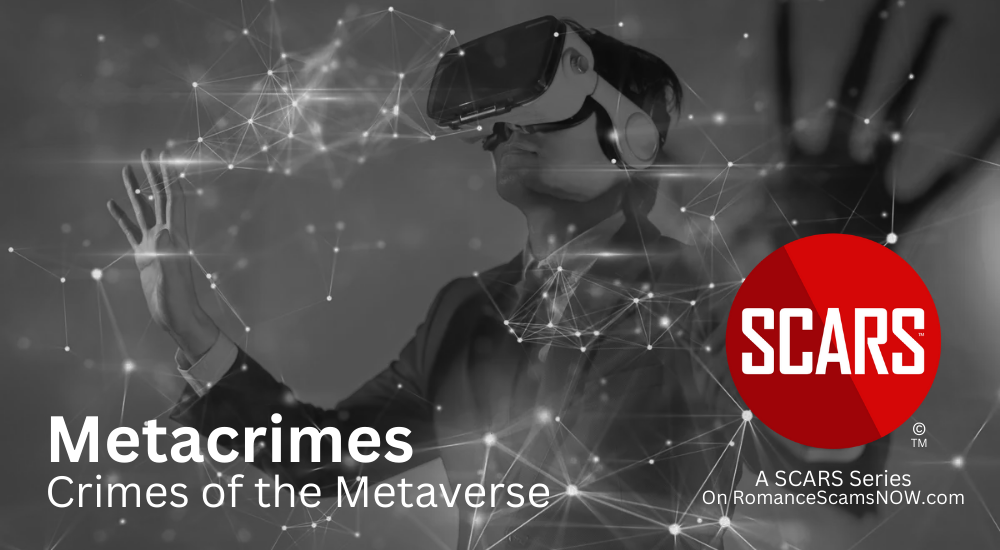
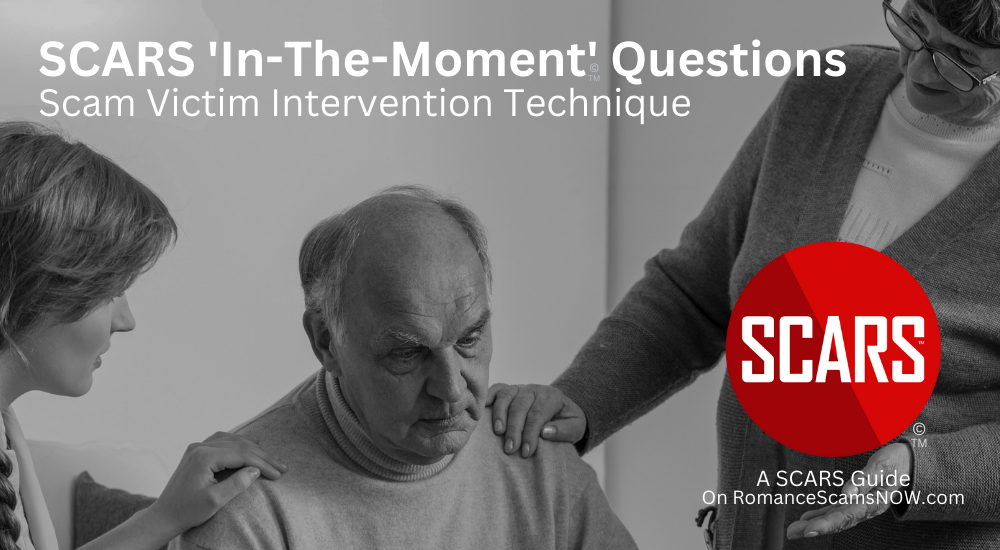
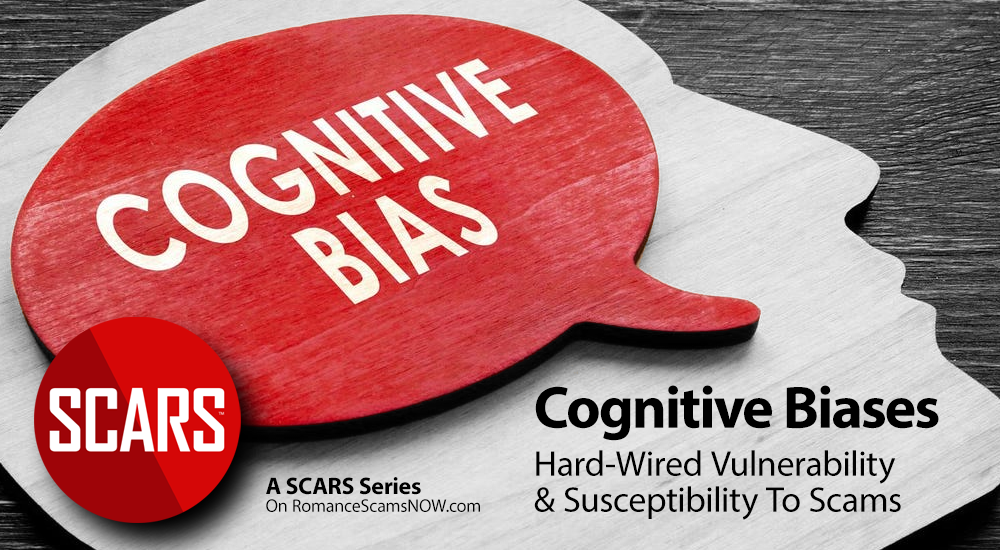

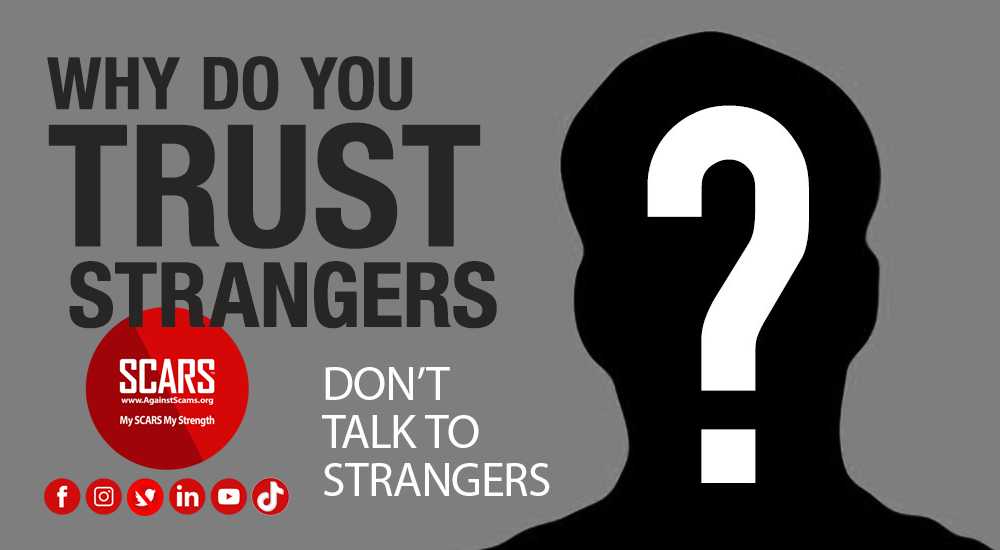


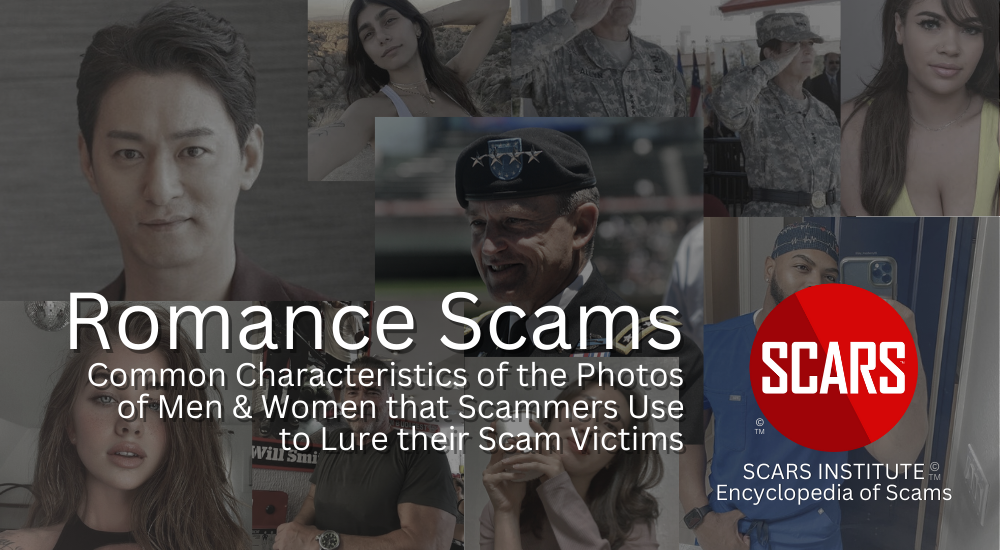











I can understand how someone could fall victim to authority bias. We’re taught to trust those in positions of authority so why would you suspect you were being deceived?
Authority Bias may have been part of my scam. I have seen these scams on the local news and it is like the lowest thing anyone can do to take advantage of someone based on impersonating law enforcement, utility companies and so forth. Fraud is bad enough without criminals going to the extent of showing up on someone’s doorstep and demanding information. But back to how Authority Bias affected my situation. Growing up our parents taught us to respect those older than ourselves. That people much older such as grandparents, aunts, uncles and so on have a wealth of experience that can help us. In my crime, the criminal was impersonating someone nearly 20 years older than me. Because of my upbringing I was prewired to listen. Add to that, the criminal was impersonating a celebrity that I admire and respect. More authority in a sense. I remember at times questioning the request to provide gift cards and why was “he” following the same methods as scammers? Then the criminal would get me worked up as to “why was I comparing “”him”” to a scammer? Did I think “”he”” was a scammer?” And more. Guess what? I hit it on the head and the criminal was thinking I was slipping from their control and with me my money. Additionally, I was too close to home in accurately thinking of scams. But that is where my mind took and left me grasping at nothing. There was a fog, an inability to be able to rely on anything let alone tell me I was in danger. Thinking back there is so much I don’t remember. After the fact I realized there were days I didn’t take my medication. Many days. But there is still so much that I don’t remember even including how I managed to drive home from work or from the long trips to find the right gift cards. There were days I left work early to travel to bigger cities to find what was demanded. Hundreds of miles.
I had a recovery scammer claiming to be a FBI Inspector with the IC3 24 hour investigation desk. However the scam wasn’t very convincing since he claimed to be Christopher Wray (the director of the FBI). I doubt very much the director of the FBI was going to personally work on my case. Also, when I reported this to my local FBI office they informed my the FBI has agents, and don’t use the Inspector title.
At first I wad very pleased the FBI was helping me retrieve my money. That is until I realized it was just another recovery scam out to get my money.